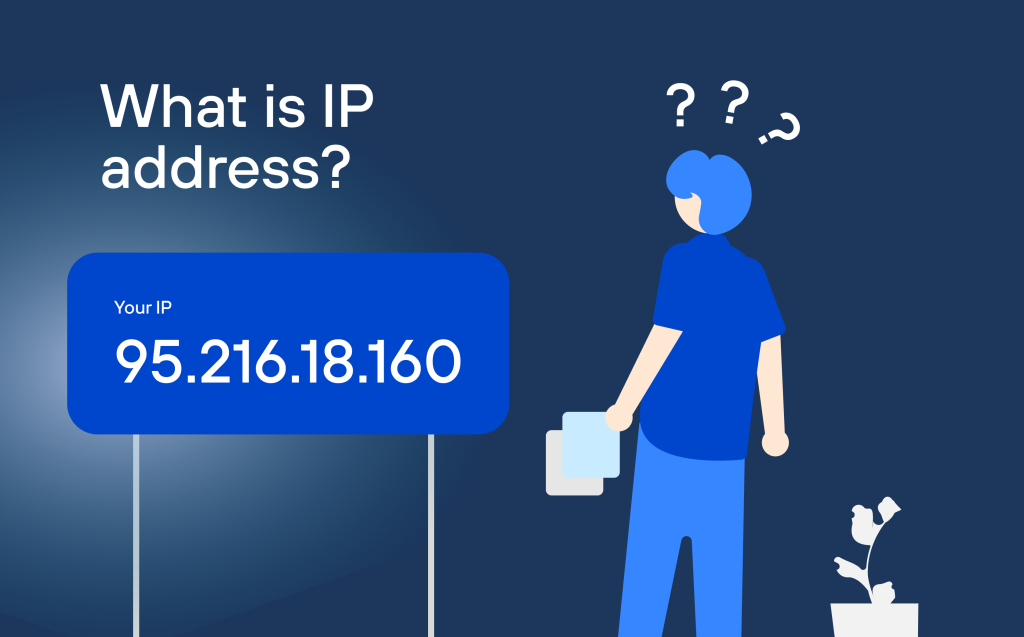You’ve heard the term “IP address” before, but do you fully understand what it means? An IP address is like your physical address – it marks where you live, in a digital sense.
It’s how computers on the internet recognize each other. They tell websites where to send your requests, and what responses or information you should receive.
It’s a unique identifier
Every computer that connects to the internet has an IP address that helps them communicate with other computers. This unique identifier is also used to identify the location of a device and determine how to route information from one network to another.
The IP address is made up of groups of eight hexadecimal (base-16) numbers separated by colons, like 2001:cdba:0000:0000:3257:9652. The first portion of an IP address is called the network ID, which designates a specific network. The second portion is known as the host ID, which identifies a specific device within the network.
There are different types of IP addresses, including private and public. The difference between the private and public ip is that private IP addresses are reserved for devices on a particular network, while public IP addresses are visible to anyone connected to the same network. There are also static and dynamic IP addresses. Static IP addresses remain constant, while dynamic IP addresses are changed whenever the device reconnects to the Internet.
It’s a return address
An IP address is the digital equivalent of a mailing address, and it’s used to identify devices on network. Devices communicate with each other through discrete chunks called packets, which contain both the data being sent and a header that contains metadata about the data.
The current version of Internet Protocol, known as IPv4, provides a pool of about 4.3 billion addresses. However, this supply is quickly being depleted, so a new version called IPv6 was developed about a decade ago. IPv6 has a much bigger pool of potential addresses, and it’s slowly replacing IPv4.
There are four types of IP addresses: private, dynamic, static, and public. A dynamic IP address is one that changes every time you connect to the internet, making it difficult for cybercriminals to track your activity or even know your true identity. A static IP address is an address that does not change, and it’s typically assigned by a network administrator or device manufacturer.
It’s a passport
Every device connected to the internet or a computer network has an IP address, which serves as its digital passport. That includes your computer, smartphone, and even devices like smart speakers or connected printers.
An IP address reveals your geolocation, but not your name or other precise personal information. That’s why many people use a VPN to hide their IP addresses.
Depending on your router type, an IP address can be dynamic or static. Dynamic IP addresses are automatically assigned and change each time you connect to the internet, while static IP addresses remain the same.
The first portion of an IP address identifies the network it belongs to, while the second part, called the host ID, classifies the specific device on the network. It can be broken down further into a subnet mask, which determines how to divide the host portion into network and device parts. There are two distinct versions or standards of the IP address: the older Internet Protocol version 4 (IPv4) and the more recent Internet Protocol version 6 (IPv6).
It’s a guestbook
Rather than the physical address that the post office uses to mark where you live, IP addresses identify your device in the digital world. They tell other devices what network you are on and how to reach you. They can also mark your real-world location – which is handy for streamers who want to offer you products that are available in your country, or for websites that adapt content according to where you live.
It’s important to keep in mind that your IP address is visible to most websites you visit, online forums and chatrooms you use, and social media platforms. This means that cybercriminals could use it to track your online behavior and glean personal information about you. They could even use it to perform targeted distributed denial-of-service attacks. If they can trace your IP address, criminals can download illegal content – including child pornography and terrorist propaganda – that breaches your ISP’s terms of service.






